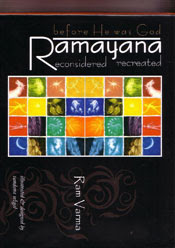In his latest book, this banker questions the functioning of the corporate sector and believes the ends are becoming far more important than the means
Mumbai-based banker Ravi Subramanian’s third book, The Incredible Banker, will be released this week. The last in his trilogy of banking chronicles—after If God was a Banker (2007) and Devil in Pinstripes (2009—The Incredible Banker is set in a foreign bank and tells the story of two employees who get embroiled in “dirty” corporate politics and become scapegoats.
An alumnus of the Indian Institute of Management, Bangalore, Subramanian is the president and CEO (non-chit) of Shriram Group. He has worked with various multinational banks, including Citibank, ANZ Grindlays Bank and HSBC, in a career span of more than 18 years.
His next book project is likely to be more of a family-oriented story about three generations of a south Indian family. In a phone interview, Subramanian spoke to us about the existing corporate culture in India, where it is headed and why, and his new book. Edited excerpts:
What is ‘The Incredible Banker’ about?
This book, like my previous books, is set in a foreign bank. It’s about how two people, trying to be one-up, play with each other’s careers, and in the process, how the organization as a whole suffers. It’s also about how people external to the organization actually make use of such conflicts.
I’ve attempted to ask pertinent questions about the functioning of corporates in India. For instance, many MNCs in India have foreign CEOs. Do we really need them when we’re so rich with talent? I also want to put across the message that even if you have the best policies and processes in place, if the people behind those are compromised, then nothing would work.
About the storyline, the two protagonists are Deepak and Karan, who work in an American bank called Boston Global. They enter into a conflict with each other, try to settle old scores, Karan eventually leaves and joins a media firm that exposes the big scam. But finally Karan realizes that Deepak was innocent, yet suffered as a consequence of the exposé.
Full interview here Mint














